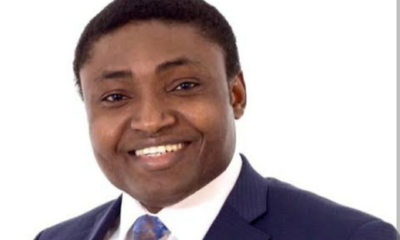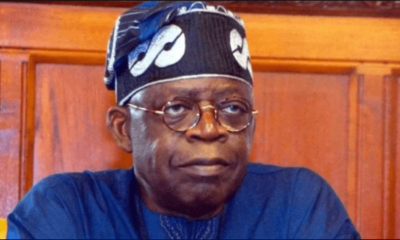News
FG To Begin Cash Transfer Of Abacha’s $322m Loot To Poor Households In July (See States Involved)
The FG says it will commence disbursement of the recovered $322 million Abacha loot through Conditional Cash Transfers (CCT) to 302,000 poor households in 19 states in July.
Tukur Rumar of the National Cash Transfer Office (NTCO), said this at a roundtable on assets recovery organised by the Swiss Embassy on Thursday, in Abuja.

The event was organised to intimate citizens and Civil Society Organisations (CSOs) on the efforts both nations were making on asset recovery after the Post-Global Forum on Assets Recovery (GFAR) held in Washington D.C. in December 2017. .
At the forum, Nigeria made commendable commitments on beneficial ownership, tax transparency, asset recovery, transparency management of recovered funds and payments to victims of corruption. .
The states are: Niger, Kogi, Ekiti, Osun, Oyo, Kwara, Cross River, Bauchi, Gombe, Jigawa, Benue, Taraba, Adamawa, Kano, Katsina, Kaduna, Plateau, Nasarawa, Anambra and Internally Displaced Camps (IDPs) in Borno.
According to Mr Rumar, the benefiting households will receive N5,000 monthly and are derived from the National Social Register (NSR) that the 19 states are already on. .
He said the programme was designed to also train beneficiaries on livelihood skills, social skills and other programmes that would change their lives completely. .
Mr Rumar, however, said NCTO had been making payments to the 46,000 poor and vulnerable households across the 19 states since December 2016, adding that the number had increased to 290,000.
Mr Iorwa Apera, the National Coordinator, National Social Safety Net Coordinating Office (NASSCO), said 503,055 households were already on the NSR register from the 19 states, adding that by July, there would be a social register for all the states of the federation.
“The Federal Government would begin with those states, because they had signed a Memorandum of Understanding (MoU) with NASSCO to put in place certain infrastructure to empower the national register.
“Some of the states delayed, but the other ones were quick enough to set up infrastructure that allowed us to start work there, but all the states are now on board as they have set up their state operating offices and donated office equipment to us.
“As states come on board, we enroll and so they extend to the beneficiary register, and presently we are generating data in all the states now,’’ he said
https://instagram.com/p/BklHoj4BgLL/?utm_source=ig_embed
Follow us on social media:-

 Celebrity Gossip & Gist2 days ago
Celebrity Gossip & Gist2 days ago“God is still in the business of doing wonders, please keep trusting God” – Emotional moment gospel singer Yinka Alaseyori serenades actress Dayo Amusa who gave birth to her first child at 41 years (Video)
-

 Biafra2 days ago
Biafra2 days agoDHQ hails Simon Ekpa’s arrest and hopes he will be extradited to Nigeria to face justice
-

 Lifestyle2 days ago
Lifestyle2 days ago“Who did this to you?” – Video of a pregnant lady flaunting her massive baby bump sparks mixed reactions online
-

 News23 hours ago
News23 hours ago“There’s hunger, however there’s huge” hope – Tinubu Lament






